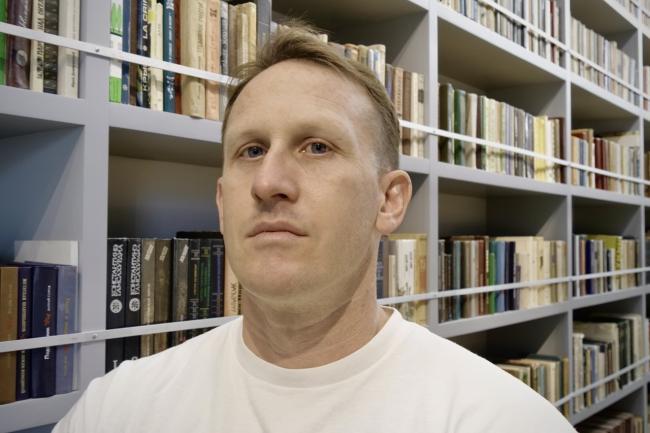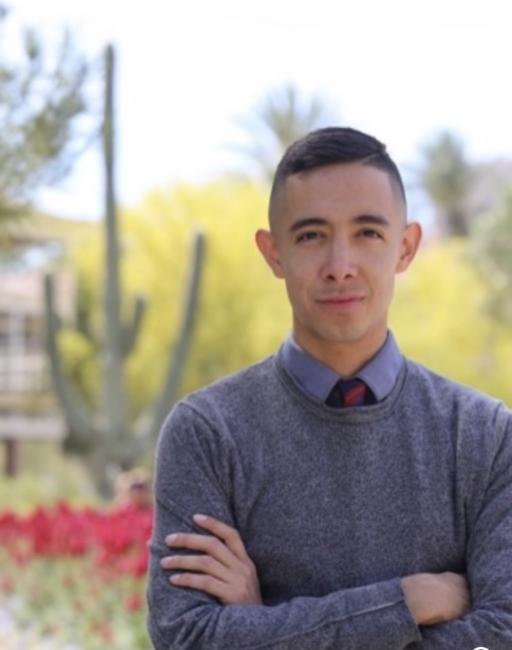Recent Global Latinidades Center Student Staff Successes with Dissertation Fellowship Awards—Clint Terrell, Maria Ana Zazzarino, and Erick John Rodriguez
From UC Santa Barbara to the Ford Foundation, the Global Latinidades Center student staff have had dissertation fellowship successes for the 2024 - 2025 academic year.
Clint Terrell is an English PhD candidate and is the lead researcher of the Conviviality Theory & Praxis Workshop for Organizers in Oaxaca, Mexico. He is a previous Pre-Doctoral Ford Fellow and has secured the 2024 Ford Dissertation Fellowship, the program's last awarding cycle. Terrell’s dissertation, titled Convict Nationalism: An Historical Analysis of Convict Identities, Race Formations, and Theories of Praxis in Twenty-First Century Prisoner Discourse, examines the etymology and genealogy of the convict category in the Americas beginning with convict transportation and up through convict leasing programs and The War on Drugs and War on Terror in the present. Terrell looks at a series of hunger strikes that took place in the California Department of Corrections between 2011 and 2013 as a case study and analyzes the language and aesthetics of solidarity in short stories, poetry, testimonials, theater plays, and artwork produced by striking prisoners to demonstrate the articulation of a political convict identity and an organic theory of counter-carceral power. Through the Global Latinidades Center, Terrell participated in a “Conviviality Ateneo” at Universidad de la Tierra in Oaxaca, Mexico where he co-wrote a conference paper with Oscar Juárez Martínez, a Graduate Student at the Autonomous University of Benito Juarez, on the use of black and white artwork in US prisons and political street art in the Asamblea Popular de los Pueblos Oaxaqueños (APPO) movement of 2006. Terrell and Martínez are developing an economic theory of art and transnational identity formation for a future publication.
Maria Zazzarino is a Comparative Literature PhD candidate and co-lead researcher of the Global Spains Workshop on Conviviality and Accompaniment Praxis in Madrid, Spain. For this academic year, she secured a fellowship with the Huntington Library and a 2024 Interdisciplinary Humanities Center Dissertation Fellowship. Maria's research examines how the Caribbean archipelago was produced as an energy-rich region and local cultural responses that conceptualize the environment beyond extractive notions of resources. At The Huntington, Maria researched the Ralph Arnold Papers, a collection of photographs and documents on geology and oil exploration in Venezuela and the Caribbean. Maria was the Project Co-Coordinator for Global Spains, a research program bringing together students, scholars, and activists from the US and Spain. Maria oversaw the logistics for the program, coordinated partners, presenters, and students, and managed the project's budget.
Erick John Rodriguez is an English PhD candidate and the second co-lead researcher of the Global Spains Workshop on Conviviality and Accompaniment Praxis in Madrid, Spain. He was selected as one of the recipients of a UC Santa Barbara President's Dissertation Year Fellowship. Erick's dissertation, titled Carnal Lassitudes: Pleasure, Power, and Subversive Masculinities in Contemporary Literatures of the Global South, focuses on affective responses to labor degradation in modern imperial countries, and its role in shaping racialized male sexualities. He specifically looks at aesthetic and narrative deployments of submissive sexual intimacy from queer Latinx, South Asian, Middle East, and Maghreb authors and cinematographers who reside in North America and Europe. Ultimately, his work critiques twentieth and twenty-first-century formations of fascist and authoritarian hypermasculinity as it emerged and continues to evolve under the conditions of capital imperialism. Erick co-organized the Global Spains Research Institute on Conviviality and Accompaniment, which seeks to expand notions of Latinidad outside traditional area and hemispheric studies paradigms. This project pairs UCSB and Duke graduate students with community activists from a variety of grassroots organizations in Madrid, particularly feminist and immigrant activists to stimulate new ways to approach humanities research that is both accessible to and useful for communities on the ground.


